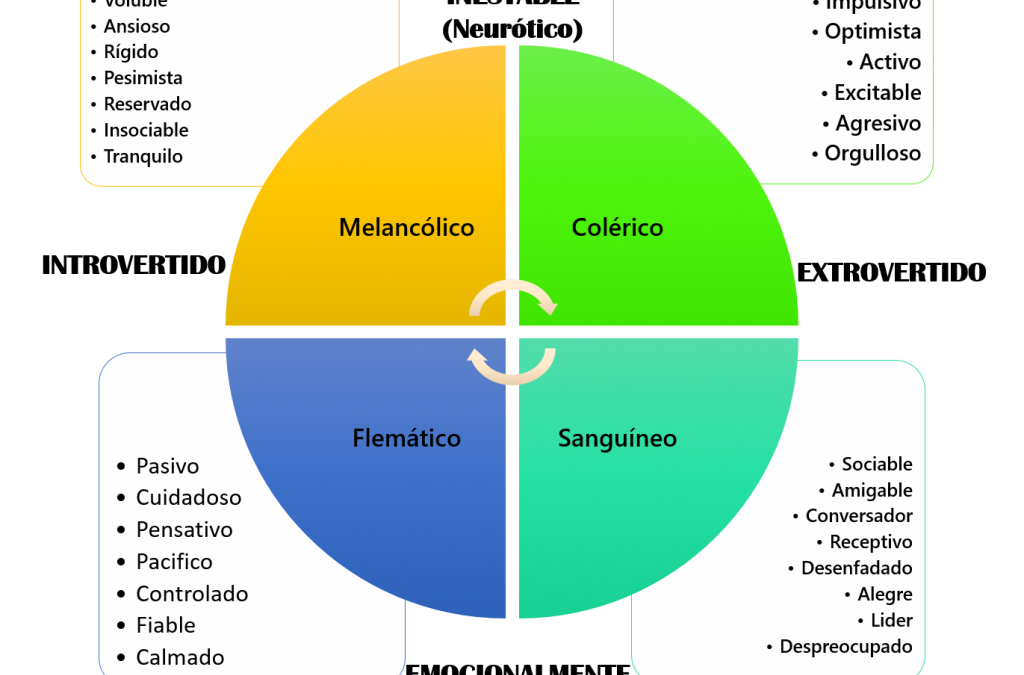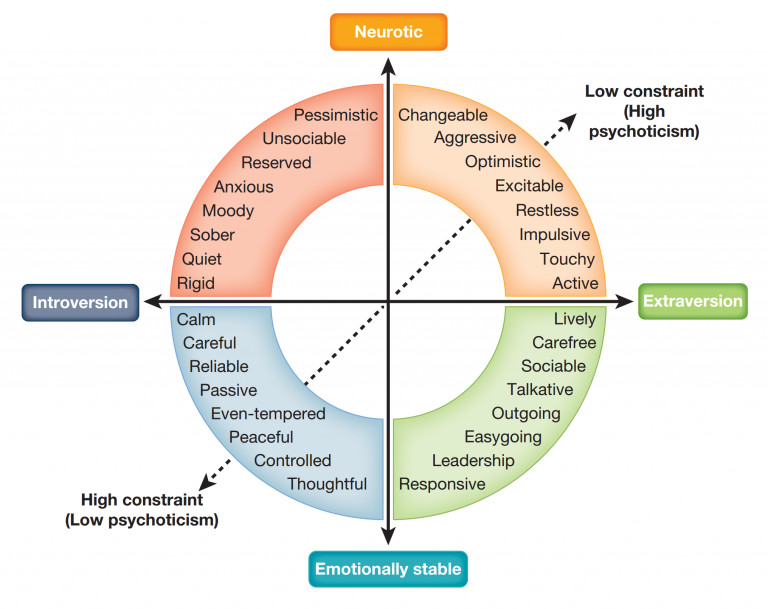
Eysenck's personality theory YouTube
We describe a newly developed 12-item short form version of the self-report Eysenck personality questionnaire (EPQ), originally developed by Eysenck and Eysenck (1975) and most recently revised by Eysenck, Eysenck, and Barrett (EPQ-R; 1985). The original EPQ consists of 90 items, while the EPQ-R involves 36 items.

Eysenck Pen Personality Test Who Im I
In psychology, the Eysenck Personality Questionnaire ( EPQ) is a questionnaire to assess the personality traits of a person. It was devised by psychologists Hans Jürgen Eysenck and Sybil B. G. Eysenck. [1] Hans Eysenck's theory is based primarily on physiology and genetics.

Has history proved Eysenck right about genes and IQ? EconoTimes
The Eysenck Personality Questionnaire Revised - Abbreviated (EPQR-A) consists of 24 items for assessment of the three fundamental personality traits (psychoticism, extraversion, and neuroticism) and a validity scale (lie scale). Our objectives were to assess the psychometric properties of a version of this instrument culturally adapted for Brazil.

Eysenck Personality Inventory Interpretation of Scores Extraversion
The Eysenck Personality Profiler (EPP) is a personality test which measures an expansion of Eysenck's "giant three" system of personality classification. It provides scores on 21 traits of personality plus a lie scale, each containing 20 items (a total of 440 items). Response options are "yes", "no," and "can't decide.".

Eysenck Personality Test Who Im I
The Eysenck Personality Questionnaire (EPQ) is a three dimensional personality assessment tool that was preceded by an overlapping two-dimensional measure called the Eysenck Personality Inventory (EPI). The EPI was developed by Hans and Sybil Eysenck [1] to measure the two broad dimensions of Extraversion-Introversion* and Neuroticism-Stability.

Big Five Personality Test Traits / Factors Learn Cybers
On the Alternative Five-Factor Model: Structure and Correlates. P.G. Schmitz, in On the Psychobiology of Personality, 2004 1.4 The Relation Between the Zuckerman-Kuhlman Personality Questionnaire and the Eysenck Personality Questionnaire. According to Zuckerman et al. (1993), the scales from the ZKPQ and the EPQ should load on E, N, and P as markers.This should be tested by means of a.

Eysenck Pen Personality Test Who Im I
The Eysenckian view links personality and criminality with a simple mechanism: personality traits are linked to learning pro- and antisocial behaviors that are linked to delinquent and criminal behavior and recidivism. Eysenck and Gudjonsson ( 1989) in summary note as follows: 1.

Eysenck personality questionnaire on extroversion and introversion
The Eysenck Personality Inventory (EPI) measures two pervasive, independent dimensions of personality, Extraversion-Introversion and Neuroticism-Stability, which account for most of the variance in the personality domain. Each form contains 57 "Yes-No" items with no repetition of items.

Table 1 from The development of an abbreviated form of the revised
The Eysenck Personality Questionnaire (EPQ) is a self-report instrument that is based on Eysenck's theory of personality. The EPQ was developed by Hans J. Eysenck, one of the most influential personality theorists, and Sybil B. G. Eysenck, and is part of a group of scales developed by Eysenck and his colleagues.

8 best Personality Theory images on Pinterest Personality, Studying
Hans Eysenck was the leading personality and individual differences theorist of the 20th century. His goal was to combine the best theories and practices of experimental psychology with the best measurement techniques of individual differences. From his earliest analyses of the dimensions of individual differences, through multiple iterations.

Haz tu Test Inventario de Personalidad de Eysenck (EPI) gratis CIS
This free personality test, which is based on the well-proven Eysenck Personality Questionnaire, provides the tools for a wide-ranging analysis of your personality, so you can know yourself better. Covering the areas of Introversion/ Extraversion, Emotional Stability, Determinism, Sexuality and Social & Political Attitudes, it will help you see.

Eysenck Pen Personality Test Who Im I
The Eysenck Personality Questionnaire (EPQ) The Eysenck Personality Questionnaire is based on tried and tested principles, the result of research by renowned Professor of human psychology, Hans Eysenck, and described in his popular book ' Know Your Own Personality ' published first in 1972.

Test di Personalità di Eysenck. Scopri qui il tuo profilo
Eysenck's personality theory is considered a true paradigm and the most solid theory that psychology has offered. The theory best explains why each person has their own personality. The theory states that there are three large traits inside each of us. These three traits are psychoticism, extraversion, and neuroticism.

test de eysenck
The Eysenck Personality Questionnaire (EPQ) is a psychometric assessment tool developed by psychologists Hans J. Eysenck and Sybil B. G. Eysenck in the 1960s. The EPQ is based on Eysenck's theory of personality, which posits that personality traits can be organized along three primary dimensions: Extraversion-Introversion, Neuroticism-Stability, and Psychoticism.

Eysenck Pen Personality Test Who Im I
Eysenck Personality Questionnaire is a questionnaire used to analyze the personality traits of a person. It was devised by psychologists Hans Jürgen Eysenck and Sybil B. G. Eysenck. Hans Eysenck was a behaviorist, so he strongly believed in the importance of learned habits. But he also believed a person's personality is determined.

The 23 Best Personality Tests In Ranking Order (2022 Update) WorkStyle
The PEN model is a biological theory of personality developed by influential psychologist Hans Eysenck (1916-1997). The model focusses on three broad personality factors: psychoticism, extraversion and neuroticism (PEN). Personality Theories Personality Types (Friedman & Rosenman) Five-Factor Model of Personality Theories of Personality